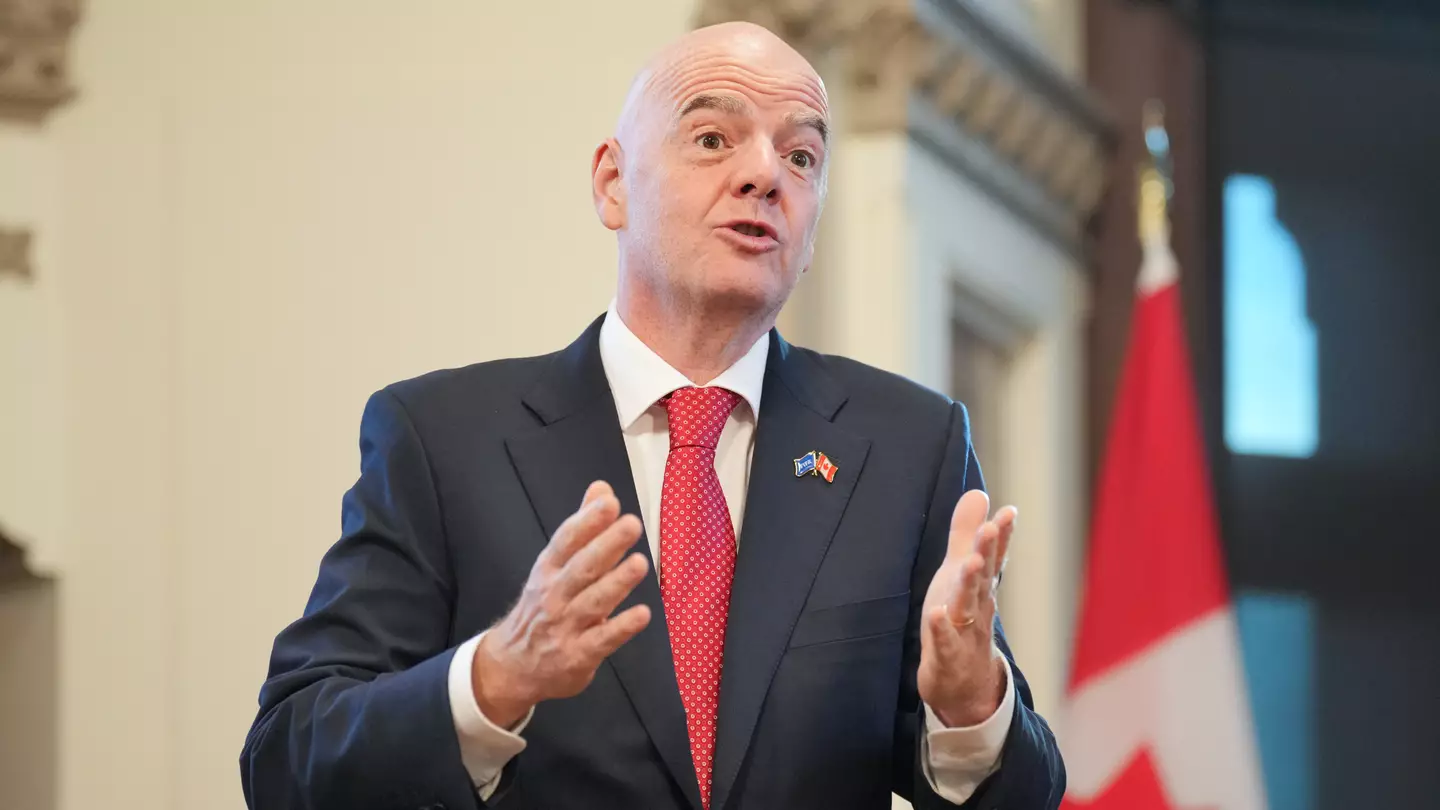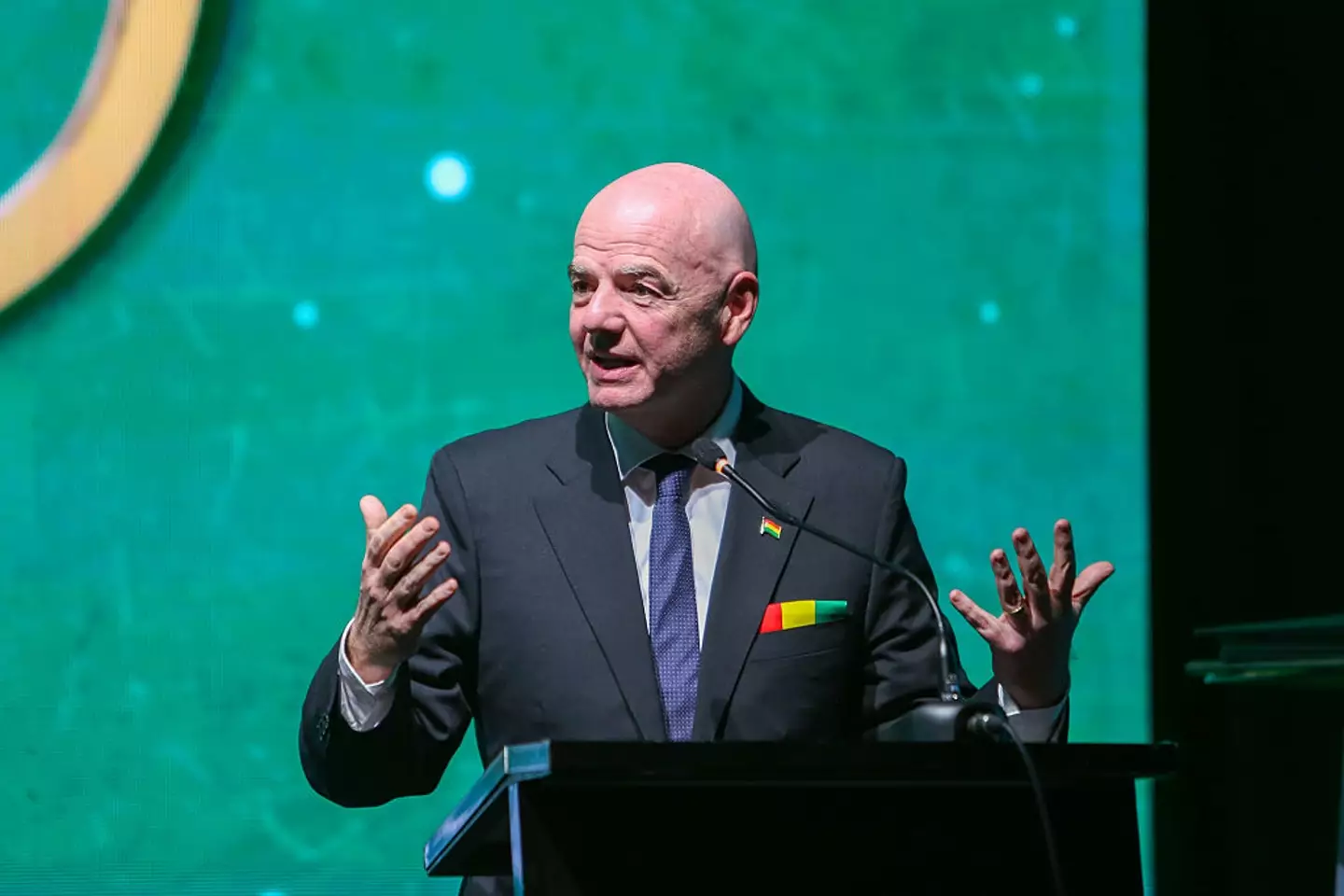
FIFA President Gianni Infantino has promised a country that was once banned from hosting qualifying matches they will host a future World Cup.
In less than eight months, several of the best countries in the world will travel to the United States, Mexico and Canada as the 2026 FIFA World Cup gets underway.
Following the 2026 World Cup, the next competition, set to take place four years later in 2030, will be jointly hosted by Morocco, Portugal, and Spain while the 2034 World Cup will take place in Saudi Arabia.
As it stands, the hosts for the following World Cup in 2038 is yet to decided, with the bidding process for this World Cup yet to start, although it remains likely that only North America and/or Oceania will be allowed to host.
Advert
However, there is one other country that could stand a chance of hosting a World Cup in the near future, as FIFA President Infantino promised to bring the competition there despite the fact they were once banned from hosting qualifying matches.

During a recent trip, Infantino led led the inauguration of the Casa de la Verde, the Bolivian Football Federation's first high-performance complex which will act as base for all national teams.
As he led the ceremony opening, Infantino promised that we will one day see the African nation host the biggest competition in all of football, the World Cup.
"We're going to bring a World Cup here, of course," Infantino pledged.
"We're going to see which World Cup we're talking about, but with these infrastructures that are being built and the passion for football that this country has, of course we have to keep supporting,"
As mentioned by Infantino, it remains unclear which World Cup will be most suitable for Bolivia, with 2042 appearing to be the first possible opportunity.
Interestingly, should Bolivia host a future World Cup, they will join a short list of host nations that were previously handed a ban from FIFA, preventing them from holding international matches.

Why FIFA banned Bolivia from hosting matches
Back in May 2007, FIFA imposed a temporary ban on all international football matches held at altitudes exceeding 2,500 metres (8,200 ft) above sea level.
The decision came over fears that the thin air could have on player health and the competitive imbalance for teams unaccustomed to the high-altitude conditions.
Because of this, Bolivia, Ecuador, and Colombia were restricted from hosting World Cup qualification matches in high-altitude cities like Bolivia's La Paz, the city that is now home to the new Casa de La Verde complex.
However, after significant protest and negotiations from the likes of Diego Maradona, the ban was revoked in May 2008.
As part of his protests Maradona played an hour-long match at Hernando Siles stadium in La Paz, which is 3,600 metres above sea level, proving that if at 47 years old he could play there, then any young professional would be more than capable.
Topics: FIFA, Gianni Infantino, Football